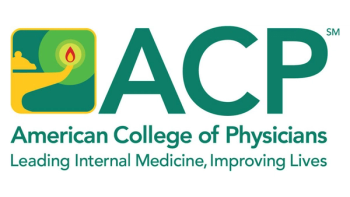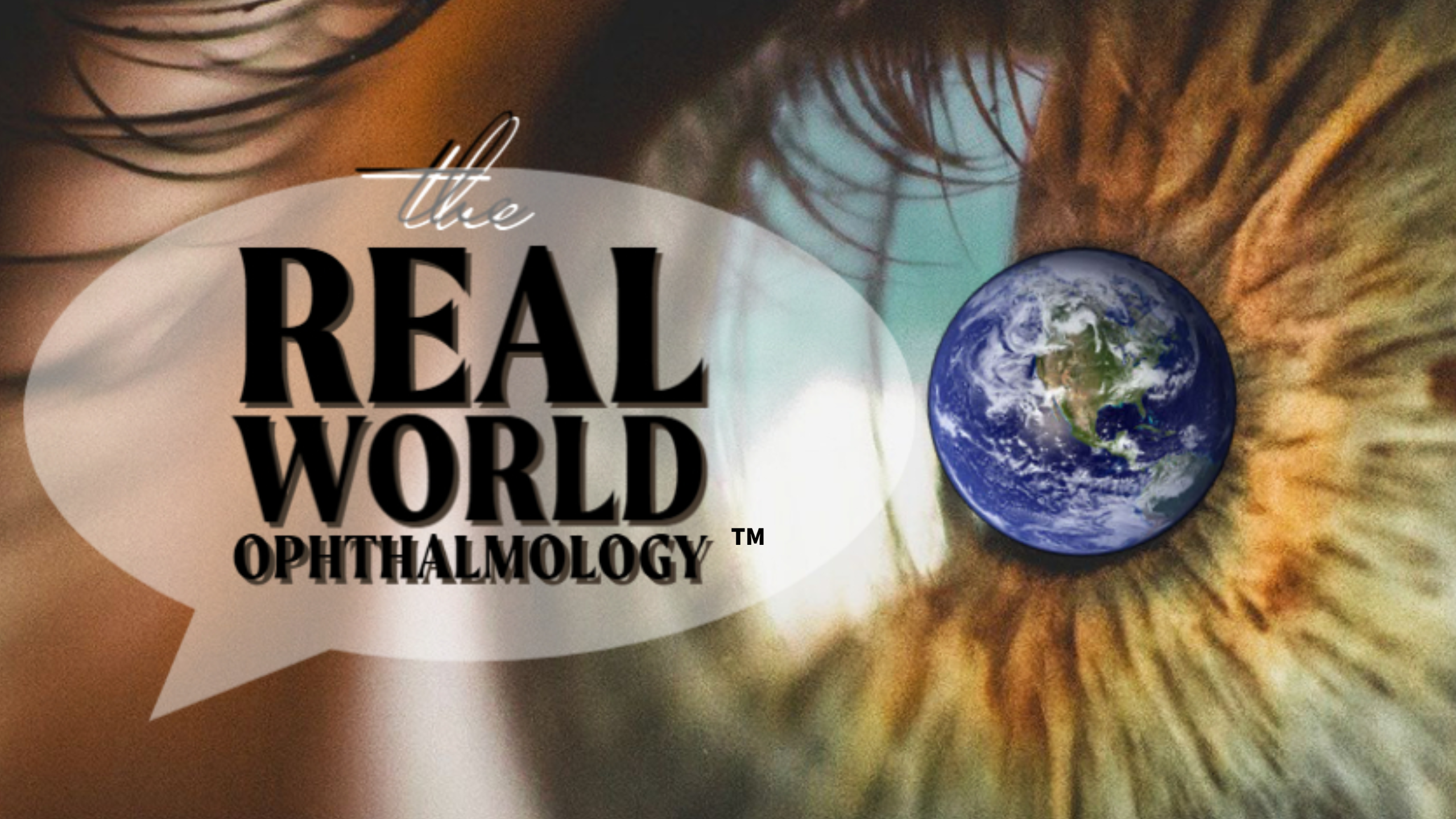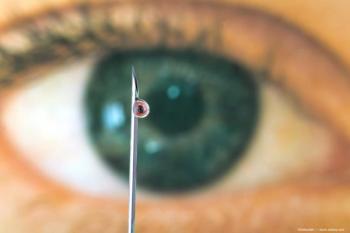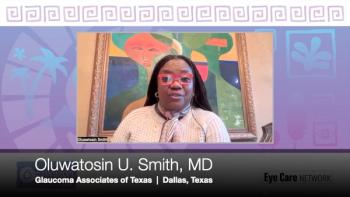
RWO program helps ease the path for young ophthalmologist audience

Lisa M. Nijm, MD, MD, highlights what residents, fellows, and ophthalmologists who are early in their careers can expect at the virtual Real World Ophthalmology meeting on Saturday, April 15.
Lisa M. Nijm, MD, MD, sat down with Sheryl Stevenson, group editorial director of Ophthalmology Times®, to highlight what residents, fellows, and ophthalmologists who are early in their careers can expect at the virtual Real World Ophthalmology meeting on Saturday, April 15.
Video transcript
Editor’s note: This transcript has been edited for clarity.
Sheryl Stevenson: We're joined today with Dr. Lisa Nijm, who is the founder of Real World Ophthalmology.
Dr. Nijm, welcome to you. We're talking about the next conference, which is taking place on April 15. Could you tell me a little about what's different or unique for this particular session?
Lisa M. Nijm, MD, JD: Thanks so much, Sheryl. It's a pleasure to be back here. We are really excited to welcome everyone to Real World Ophthalmology, 'Tell Me Your Secrets,' on Saturday, April 15.
I am super excited for our keynote speakers because they're two up and comers—you might have heard of them. I'm kidding, of course! It's Dr. Stephen McLeod [who is] the CEO of the American Academy of Ophthalmology, and Dr. Michael Chiang, who's the Director of the National Eye Institute. It's so gracious of them to be taking time out from their busy schedules to come talk to our young ophthalmology audience and share the pearls that they wish they knew sooner—having achieved such high positions in the field, within the American Academy of Ophthalmology, and within the National Eye Institute and touching so many ophthalmologists, and so many patient lives. They've got some incredible advice to share that I'm very excited for all our attendees to hear, and also have the ability to ask them questions live.
That's really one of the unique things that we bring at Real World Ophthalmology is this chance for everybody to come together. We have another incredible faculty of over 70 expert physicians from across the country. We've got 8 chairmen, several residency program directors, fellowship directors, and you look at our faculty list, it's an incredible who's who from the academic and private world. The great thing is that we're all here with the same purpose, which is coming to share the knowledge that we wish we knew sooner on clinical innovations, business aspects of ophthalmology, and areas for personal and professional growth, and to do it in a way that we're easing the path for the ophthalmologists who are coming after us.
We're honored to have leadership ambassadors from the Cornea Society; AGS [American Glaucoma Society]; AAPOS [American Association for Pediatric Ophthalmology and Strabismus]; NANOS [North American Neuro-Ophthalmology Society]; ASOPRS [American Society of Ophthalmic Plastic and Reconstructive Surgery] ...I mean, you name it, there they are. We are kicking off the program with a special featured section from all our specialty societies. That's going to be moderated by the one and only Dr. Kathy Colby, who has kicked off each of our Real World Ophthalmology meetings. She's going to moderate that session, and we're changing it up a bit. We want to give some insight into choosing a fellowship or choosing that specialty as a fellowship but we also want to highlight 3 diagnoses not to miss in each field. When you're coming up as a young ophthalmologist, even early in your career, there are things you don't want to miss: neuro diagnoses, peds diagnoses, retina, etc. It's great to have a cheat sheet. Give me a high-yield quick session that's going to give me the best facts that I should know, and a little of insight into how to work with these specialty societies.
Stevenson: Aside from the clinical aspects of the program, there also is the practical business side of career and professional development. Can you tell us a little about that aspect?
Nijm: Absolutely. I think that's something that's so important. We know that it's a gap in training. There isn't time within residency training to learn everything that you need to know about being an ophthalmologist in practice. and there are all these lessons that we've learned along the way. Certainly, you can learn them on your own but, gosh, isn't it easier when somebody else who's got the experience already can come and tell you what they learned. We've got some unique sessions. One about jobs and 'Tell Me Your Secrets'—that's the theme of the meeting to finding the right job. Dr. Nicholas Volpe, the Chair at Northwestern University, is going to be leading that session. He's really passionate about helping young ophthalmologists see what are the most important questions that they should be asking when they're interviewing for different jobs. He's interviewed so many ophthalmologists. He's got some great insights there. He's joined by an incredible panel of experts on the topic of jobs as well.
We also have sessions on coding and billing because we all know that if you don't know how to code, you don't get paid. We want to make sure that we can do that in practice and learn some of the nuances of the system. Joy Woodke, who is the head of the Academy's coding and billing, will be joining us again. She's got an excellent session prepared, as well as a live Q&A. Then we've got some sessions on interacting with patients, building your practice early on, how to navigate some of those waters when you're starting practice of establishing yourself, developing your referral network, marketing your practice, and using even social media as a way to market your practice. We've got some insightful ophthalmologists who have been successful with this who are going to be speaking on panels and giving you a chance to interact with them and connect with them to help you in your own practice.
Stevenson: That's amazing. And there's a poster Hall of Fame?
Nijm: So one of the exciting things that we added last year, and we're continuing because it was such a great hit, was the opportunity to submit a poster to our poster Hall of Fame. The idea is to showcase. I know I used to spend hours on posters for all of these meetings. You would spend so much time doing the research, creating the poster, and then you go and put it up at the meeting and it's up there for like half an hour, and maybe one or two people come by. We want to showcase the work and the research that young ophthalmologists are doing. We encourage you if you have a poster that's been accepted somewhere else submit it here, too. We want to highlight you and it's really easy. There is a committee that will be reviewing the posters. If you just head over to the website, under Poster Hall of Fame, there's a quick form that you fill out. You have to make sure you're registered for the meeting, which is free. Our poster committee will notify you if you're accepted and then give you instructions on how to upload. It was a big hit last time because was it a curated set of posters with really some incredible work by our young ophthalmologists.
Stevenson: Are there plans for awards or recognitions as well during this year's conference?
Nijm: Yes, that is also something that we've started or we've done from the beginning and we'll continue. We've had incredible residents, fellows, and young ophthalmologists in the first 10 years of practice be recognized for their great work. I know sometimes it's hard to get that recognition when you're up against people who have been in practice for 30 years. We want to recognize those who are in early practice. We've got the Inspiring Academic Leader, Practice Trailblazer, Community Service, Humanism Awards... We've got 8 different awards in ophthalmology. Anyone can nominate. I would also encourage you to head over to the website to nominate a young ophthalmologist who you've been impressed with and who's doing great work, because we'd love to get the chance to honor them and showcase them at the meeting.
Stevenson: Is there anything else we haven't touched upon that you would like to add?
Nijm: We've got incredible content. I encourage everybody to join us and see what we're doing. You're gonna be really excited. We've got over 2600 young ophthalmologists from 97 different countries. I think we can get those 3 more countries and make it an even 100 this time. One of the great things is that, for example, we have a cataract and refractive deep dive panel and we're bringing some experts: Dr Ben LaHood from Australia, Roger Zaldívar from Argentina, [along] with our faculty from the US, including Dr Vance Thompson and Dr Anjali Tannan. A whole bunch of really remarkable surgeons. We're going to have a discussion on what you need to know about all the newest things in cataract and refractive. There's so many new lenses and new procedures and it's things that you don't want to miss.
We like to have fun while learning. We're big fans of having fun while we're there. We're going to continue our contests. Our supporters have been gracious to donate prizes like ophthalmic lenses, surgical instruments, scrubs, and other things that will help you in practice. It's a great chance for everybody to come together, get some education, meet new people, meet some new mentors and network, and learn something that's going to help your patients that Monday when you go back to work.
Stevenson: Where can people register?
Nijm: Great question!
To learn more about or to register for Real World Ophthalmology,
Newsletter
Don’t miss out—get Ophthalmology Times updates on the latest clinical advancements and expert interviews, straight to your inbox.





























